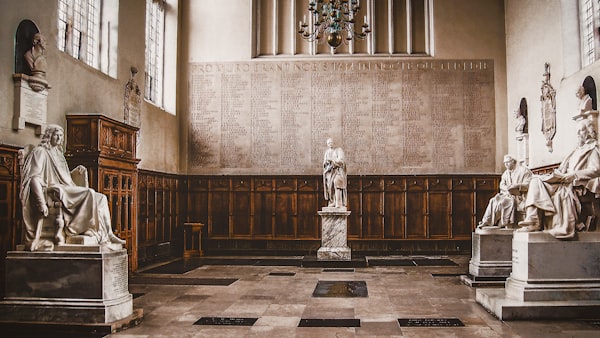Django Unchained
Django Unchained is definitely one of the best films of 2012. It may not get everything it deserves at the Oscars, but thankfully people are seeing it anyway and it's getting plenty of love at the box office.
Tarantino is Back
Quentin Tarantino is back in his usual style with this film. It is full of excessive, almost cartoonish, violence and gore. The song choices are a hodgepodge of genres, styles and decades, yet with each choice fitting perfectly with the mood and meaning Tarantino is conveying. The images convey both the time period the story takes place in with plenty of homages to a more modern style. It's still post-modern filmmaking at it's finest.The style isn't the only thing familiar in this film, however. Having recently discussed Pulp Fiction with some of you, I couldn't help but find some parallels between these works.
Django Unchained forces us as an audience to look at slavery, one of America's most famous sins, through a new lens. We've heard the story told in so many ways, but Tarantino brings a new light to things, as he always does.
One of the key parallels to Pulp Fiction is that there is no "good guy" in this film. We have no Lincoln, no abolitionist, no righteous preacher or prophet. We are left only with multiple layers and levels of evil. Our "heroes" are merely better than the villains around them. They are killers themselves, on a journey to both vengeance and money. In many ways, we only classify them as heroes because they have better motives than those they kill. We label bounty hunters as heroes; bounty hunters who we usually classify as scum and villainy in other films.
Can We Call it Justice?
Once again, Tarantino is playing with our ideas of justice; what it is and who deals it out. Django and Dr. Schultz are giving many people what they deserve. They hunt down criminals for the state of Texas, men who the world is most likely better without. But they aren't necessarily concerned completely with justice: while they kill men who abuse slaves, they don't set all the slaves free. They leave the slaves on their own, in the middle of a forest in the cold of night. They aren't concerned with setting all things right, but Schultz will bring some men to justice for money and because he believes men with lesser moral fiber than he should die. Django will do the same so that he can get one step closer to the wife he's separated from, killing the men who have done him wrong.In the end, Django gets a happy ending, riding off into the night with his wife, leaving many a slaver and criminal dead in his wake. Was justice dealt out? Maybe, but maybe not through just means. As with Pulp Fiction, good and evil are relative to the situation you are in. As long as you save the world from men more evil than you, your means are justified.
We as an audience go through a journey into the world of slavery and come out on the other side feeling like good has won. But should we? This film tells us that things like justice aren't always black and white, that there is a gray area that each of us must navigate and hopefully become the hero in each situations. A hero not by virtue, but by being only slightly more just than those you kill. As long as you are better than the victim of your wrath, you're ok.
It makes for a good movie, but what do you think? Is this how we should see and interact with the world? I'd love to hear your thoughts on the movie in the comments.




